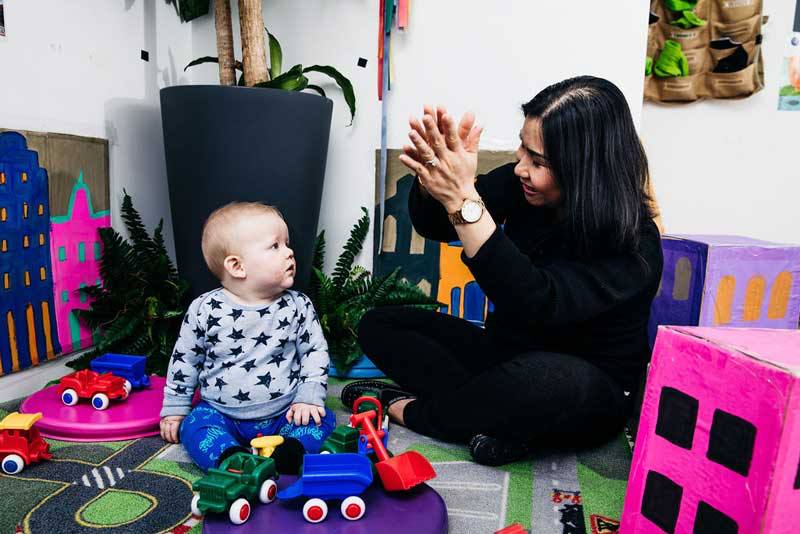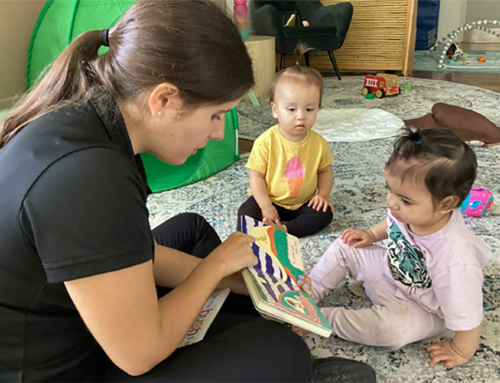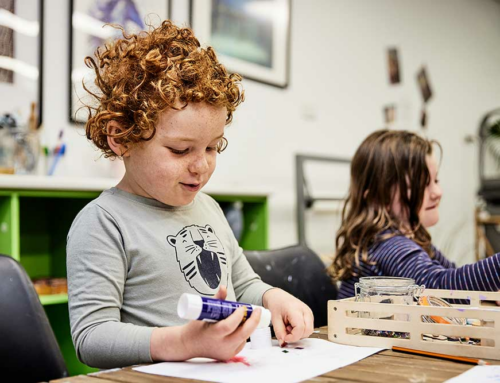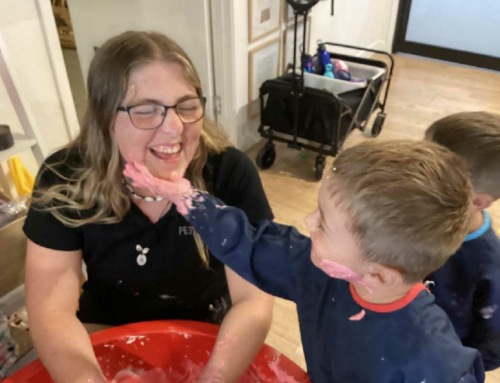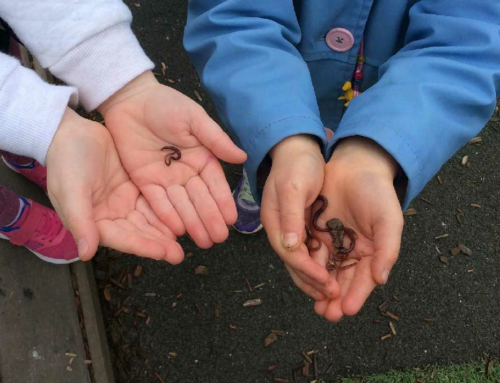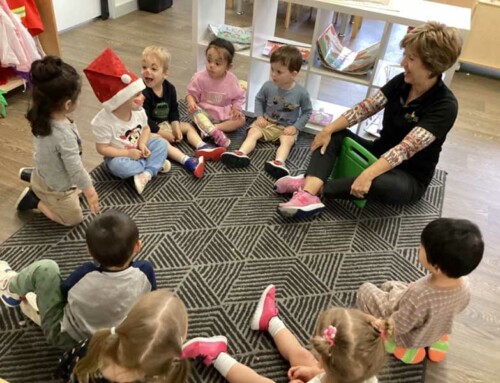Baby development milestones are an introduction to your child’s first twelve months. We separate our baby milestones into segments based on the Early Years Learning Framework. You should consider these milestones through the lens of your family and child.
All children learn at their own pace. Premature babies may develop slower than other children who reach full term. How a baby learns to do things is not predictable—there’s no one size fits all development list to tick off.
Playing with your baby inspires their development. Their learning is ongoing and dependent on the relationship they have with you. Having an understanding of their development can help you choose what playful activities to do.
You can also use baby development milestones to track how your child is doing, and to also discover playful ways to encourage their development.
If you’re concerned about your baby’s development, always talk to an expert. If your child participates in early childhood education and care, your Educator can support you in making contact with a local family health nurse.

3 month baby milestones including newborn
Newborn milestones are subtle. However, a newborn baby uses their sight to learn of their immediate environment (up to 20cm). They’ll do a tremendous amount of sleeping on and off, and while awake they’ll also wriggle their arms and legs about.
Hearing sudden noises and turning towards them is also an early milestone. Encourage your baby’s startle reflex by laying them unwrapped on their back and by making noises to either side of their head. Sensory play invites newborns to become involved learners.
Supervised tummy-time leads to another baby development milestone for your newborn. Spending time on their front will help them to lift their head up and strengthen their neck muscles. Moving around the room encourages your child to lift their head to find you.
Our 3 month baby milestones include the period from birth and up to 4 months (thereabouts). Other milestones during this time may include:
- Developing eating and sleeping patterns.
- Sucking reflex.
- Rolling from side to side.
- Responding to gentle touches, cuddling and rocking.
- Reaching up to grasp objects.
- Hold things that they are given.
- Crying.
- Expresses needs (through baby sounds).
- May start to copy sounds, or mouth and tongue movements.
Because your baby’s eyes are still developing, it’s a good time to get up close and personal. Give them lots of cuddles and sit down next to them on a mat while they play on their back or tummy. By 3 months, your baby’s eyes should be tracking and focusing objects together.

6 month baby development milestones
All babies develop differently, so when we talk of 6 month milestones, these could develop earlier from around 4 months and up to 9 months or later. Around the 4 month mark, children become more persistent and communicative when trying to do things.
Where they once rolled from side to side, your baby may suddenly roll onto their back. They may also begin playing more frequently with their hands and toes. Other physical baby development milestones for this age range include, rolling or attempting to crawl.
Child’s play is often discounted as silly fun. However, nurturing child-led play is an effective way to inspire a child to practise baby development milestones at their own pace. And this is true for mealtimes.
When the time is right, introducing solids into your baby’s diet won’t just revolve around nutrition. There are many sensory elements to food. And while it may be messy, your baby’s curiosity will help them develop a disposition for certain textures and tastes.
Between 4 and 8 months, you may also notice your baby reacting to their name, copying sounds and settling in to their sleeping patterns. They may even choose to self-soothe when tired with a thumb or dummy.
When alert, your baby will be more attentive to playing with dangling objects and toys. Other baby development milestones in this bracket include:
- Exploring objects with their mouth.
- Repeating interesting, accidental actions.
- Sitting up with support.
- Banging objects and simple games.
- Smiling and making baby sounds during mirror play.
- Noticing familiar faces and reaching up to be picked up.
- Able to coordinate multiple senses such as looking, hearing and touching.

9 month old milestones
By nine months, some babies may have begun teething. Teething toys (especially the ones you freeze) can help reduce your baby’s discomfort. But for other babies, that first tooth may still be months away.
You may also notice some of our 9 month old milestones a little earlier. Still, by this stage, your baby is growing more confident engaging in more complex tasks using their sensory-motor skills. It’s a good time to challenge your baby with new experiences.
Baby development milestones around 9-12 months include recognising their primary carers. They’ll also develop an understanding of their secondary carers. That could be Nana and Pop or Educators at a child care centre.
On the flip side, they may show some anxiety when a parent leaves them in an unfamiliar setting. A comforter like a special blanket or a cuddly toy can soothe children displaying separation anxiety.
Children develop a widening range of skills and processes between 9 and 12 months. Observe your baby development milestones and encourage their learning by:
- Using their name frequently so they can learn to respond to it.
- Giving them blocks and rice shakers for banging two objects together.
- Developing their interest in different types of play by inviting them to use different kinds of resources such as mirror play, water and natural objects.
- Joining in their game of deliberately dropped items. It helps them to exercise their ability to track objects and work out how to let go of things.
- Reading picture books with them and handing them over for exploration.
- Finding pleasure in sound-making toys, just like your baby.
- Encouraging them to imitate hand gestures such as waving goodbye.
- Letting them use their hands to feed themselves.
- Freeing up space so they can learn to crawl or hold onto sturdy objects to stand up.
- Showing them how to sit up without support. (Get down to your child’s level.)
- Placing various age-related objects around their play space to entice them to pick them up and exercise their fine motor skills.

Choose Petit Early Learning Journey to support your baby’s development milestones
At Petit ELJ, we partner with parents to provide the best care for their child. We create strong mutual relationships by listening, learning and working with you on things that matter.
We believe that all children are driven by their curiosity to explore. Learning occurs when children actively seek out answers and investigate the world around them, whether their curious newborns seeking out faces or 9-month olds on the crawl.
Discover how we can inspire your child to grow and develop by visiting your nearest Petit ELJ centre.
